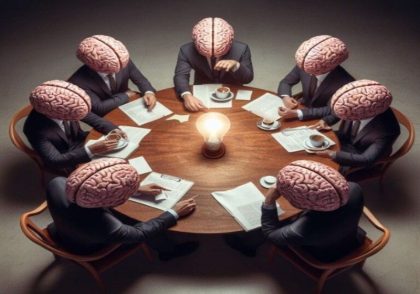Key words of psychology

Comprehensive Glossary of Psychology Terms (English) – 100 Key Concepts
Psychology, as the scientific study of mind and behavior, has developed a rich vocabulary to describe the complexities of human cognition, emotion, and interaction. This carefully curated list of 100 essential terms spans foundational theories, clinical disorders, therapeutic approaches, and cutting-edge neuroscientific concepts. From basic processes like “cognition” and “perception” to specialized terms such as “neuroplasticity” and “dialectical behavior therapy,” this glossary serves as both an introduction for students and a reference for professionals. These terms represent the building blocks of psychological science, offering insights into how we think, feel, and behave in various contexts. The below list includes 100 key terms :
-
1. Psychology
The scientific study of mind and behavior. APA Dictionary2. Mind
All intellectual and psychological phenomena of an organism, encompassing motivational, affective, behavioral, perceptual, and cognitive processes. APA Dictionary3. Behavior
An organism’s activities in response to external or internal stimuli, including objectively observable activities and introspectively observable activities. APA Dictionary4. Cognition
All forms of knowing and awareness, such as perceiving, conceiving, remembering, reasoning, judging, imagining, and problem-solving. APA Dictionary5. Unconscious
Relating to or marked by absence of awareness or consciousness. APA Dictionary6. Conscious
Relating to or marked by awareness or consciousness. APA Dictionary7. Emotion
A complex experience of consciousness, bodily sensation, and behavior that reflects the personal significance of a thing, event, or state of affairs. APA Dictionary8. Feeling
Subjective, evaluative experiences that are independent of the sensations, thoughts, or images evoking them. APA Dictionary9. Perception
The process by which individuals organize and interpret their sensory impressions to give meaning to the environment. APA Dictionary10. Attention
The cognitive process of selectively concentrating on one aspect of the environment while ignoring other things. APA Dictionary11. Clinical Psychology
The branch of psychology concerned with the assessment and treatment of mental illness and disability. APA Dictionary12. Developmental Psychology
The study of how and why human beings change over the course of their life. APA Dictionary13. Social Psychology
The scientific study of how individuals think, feel, and behave in a social context. APA Dictionary14. Cognitive Psychology
The branch of psychology that explores the operation of mental processes related to perceiving, attending, thinking, language, and memory. APA Dictionary15. Neuropsychology
The study of the relationship between brain function and behavior. APA Dictionary16. Industrial-Organizational Psychology
The application of psychological principles and methods to understand human behavior in organizations and the workplace. APA Dictionary17. Health Psychology
The study of psychological and behavioral processes in health, illness, and healthcare. APA Dictionary18. Positive Psychology
The scientific study of human flourishing and an applied approach to optimal functioning. APA Dictionary19. Psychometrics
The science of measuring mental capacities and processes. APA Dictionary20. Psychiatry
A branch of medicine focused on the diagnosis, treatment, and prevention of mental, emotional, and behavioral disorders. APA Dictionary21. Depression
A mood disorder characterized by persistent feelings of sadness, hopelessness, and a lack of interest or pleasure in activities. APA Dictionary22. Anxiety
An emotion characterized by feelings of tension, worried thoughts, and physical changes like increased blood pressure. APA Dictionary23. OCD (Obsessive-Compulsive Disorder)
A mental health disorder characterized by persistent, unwanted thoughts (obsessions) and repetitive behaviors (compulsions). APA Dictionary24. Phobia
An excessive and irrational fear of an object, place, or situation. APA Dictionary25. Schizophrenia
A severe mental disorder characterized by delusions, hallucinations, and disorganized thinking. APA Dictionary26. Bipolar Disorder
A mental health condition characterized by extreme mood swings that include emotional highs (mania or hypomania) and lows (depression). APA Dictionary27. PTSD (Post-Traumatic Stress Disorder)
A mental health disorder triggered by a terrifying event, causing flashbacks, nightmares, and severe anxiety. APA Dictionary28. ADHD (Attention-Deficit/Hyperactivity Disorder)
A neurodevelopmental disorder characterized by persistent patterns of inattention and/or hyperactivity-impulsivity. APA Dictionary29. Autism Spectrum Disorder
A developmental disorder characterized by challenges with social interaction, communication, and restricted or repetitive behaviors. APA Dictionary30. Borderline Personality Disorder (BPD)
A mental health disorder characterized by unstable moods, behavior, and relationships. APA Dictionary31. Psychoanalysis
A therapeutic approach and theory of personality developed by Sigmund Freud, focusing on unconscious motives and conflicts. APA Dictionary32. Behavior Therapy
A type of psychotherapy that focuses on changing maladaptive behaviors through established learning techniques. APA Dictionary33. Cognitive Therapy
A type of psychotherapy that helps individuals identify and change distorted thinking patterns. APA Dictionary34. CBT (Cognitive-Behavioral Therapy)
A structured, time-limited psychotherapy that aims to address dysfunctional emotions, behaviors, and cognitions through goal-oriented, systematic procedures. APA Dictionary35. Humanistic Therapy
A therapeutic approach that emphasizes personal growth and self-actualization, focusing on the individual’s capacity for self-healing. APA Dictionary36. Existential Therapy
A therapeutic approach that focuses on the individual’s experience and the search for meaning in life. APA Dictionary37. DBT (Dialectical Behavior Therapy)
A form of therapy that combines cognitive-behavioral techniques with mindfulness strategies, often used to treat borderline personality disorder. APA Dictionary38. Exposure Therapy
A psychological treatment that helps individuals gradually face and overcome their fears. APA Dictionary39. Hypnosis
A trance-like state of focused attention and heightened suggestibility, often used for therapeutic purposes. APA Dictionary40. Meditation
A practice where an individual uses a technique – such as mindfulness, or focusing the mind on a particular object, thought, or activity – to train attention and awareness, and achieve a mentally clear and emotionally calm and stable state. APA Dictionary41. Neuron
A nerve cell that is the basic building block of the nervous system. APA Dictionary42. Synapse
The junction between two nerve cells, where impulses pass by diffusion of a neurotransmitter. APA Dictionary43. Dopamine
A neurotransmitter involved in reward, motivation, and motor control. APA Dictionary44. Serotonin
A neurotransmitter that affects mood, appetite, and sleep. APA Dictionary45. Amygdala
An almond-shaped set of neurons located deep in the brain’s medial temporal lobe, involved in memory and emotional responses. APA Dictionary46. Hippocampus
A region of the brain associated with memory formation and spatial navigation. APA Dictionary47. Prefrontal Cortex
The front part of the frontal lobe, involved in complex behaviors such as planning, personality expression, decision making, and moderating social behavior. APA Dictionary48. CNS (Central Nervous System)
The part of the nervous system consisting of the brain and spinal cord. APA Dictionary49. Neuroplasticity
The ability of the brain to reorganize itself by forming new neural connections throughout life. APA Dictionary50. fMRI (Functional Magnetic Resonance Imaging)
A neuroimaging procedure that measures brain activity by detecting changes associated with blood flow. APA Dictionary51. Intelligence Test
An individually administered test used to determine a person’s level of intelligence by measuring their ability to solve problems, reason abstractly, and learn. APA Dictionary52. WAIS (Wechsler Adult Intelligence Scale)
An intelligence test for individuals aged 16 to 90 years, assessing cognitive abilities through various subtests. APA Dictionary53. MMPI (Minnesota Multiphasic Personality Inventory)
A personality inventory first published in 1940 and now one of the most widely used self-report tools for assessing personality. APA Dictionary54. Rorschach Test
A projective technique in which the participant is presented with 10 unstructured inkblots and is asked to describe what each one looks like. APA Dictionary55. TAT (Thematic Apperception Test)
A projective test where individuals are shown ambiguous pictures and asked to tell a story about them, revealing underlying thoughts and feelings. APA Dictionary56. Validity
The degree to which a test measures what it purports to measure. APA Dictionary57. Reliability
The consistency of a test or measurement over time. APA Dictionary58. Norm
A standard or range of values that represents the typical performance of a group or of an individual. APA Dictionary59. Construct
An abstract concept or trait that is measured by psychological tests.60. Factor Analysis
A statistical method used to identify clusters or groups of related items on a test.61. Attachment
A deep and enduring emotional bond that connects one person to another across time and space.62. Piaget’s Theory
A theory of cognitive development that describes how children construct a mental model of the world.63. Cognitive Development
The process by which individuals acquire and use knowledge and skills.64. Moral Development
The process by which individuals develop attitudes and behaviors toward other people in society, based on social and cultural norms.65. Socialization
The process by which individuals learn and adopt the behaviors and norms of their culture.66. Parenting Styles
The manner in which parents raise their children, including authoritative, authoritarian, permissive, and uninvolved styles.67. Observational Learning
Learning that occurs through observing the behavior of others.68. Classical Conditioning
A learning process that occurs when two stimuli are repeatedly paired.69. Operant Conditioning
A method of learning that occurs through rewards and punishments for behavior.70. Positive Reinforcement
The introduction of a pleasant stimulus to increase the likelihood of a behavior being repeated.71. Conformity
Adjusting one’s behavior or thinking to align with a group standard.72. Obedience
Complying with the commands or instructions of an authority figure.73. Social Cognition
The study of how people process and apply information about others and social situations.74. Attitude
A settled way of thinking or feeling about someone or something, typically reflected in a person’s behavior.75. Prejudice
Preconceived opinion that is not based on reason or actual experience.76. Stereotype
A widely held but oversimplified and generalized belief about a particular type of person or thing.77. Interpersonal Attraction
The force that draws people together, often leading to friendships or romantic relationships.78. Helping Behavior
Voluntary actions intended to help others, often in situations where others are in need.79. Aggression
Behavior intended to harm another individual.80. Groupthink
A phenomenon where the desire for harmony in a decision-making group leads to an irrational or dysfunctional decision-making outcome.81. Resilience
The capacity to recover quickly from difficulties; toughness.82. Self-Efficacy
An individual’s belief in their own ability to succeed in specific situations.83. Stress
A state of mental or emotional strain resulting from challenging or adverse situations.84. Adaptation
The process of change by which an individual becomes better suited to their environment.85. Defense Mechanisms
Psychological strategies used by individuals to cope with reality and maintain self-image.86. Projection
Attributing one’s own unacceptable thoughts or feelings to someone else.87. Sublimation
Channeling unacceptable impulses into socially acceptable activities.88. Denial
Refusing to accept reality or facts, acting as if a painful event, thought, or feeling does not exist.89. Introversion
A personality trait characterized by a focus on internal feelings rather than on external sources of stimulation.90. Extraversion
A personality trait characterized by sociability, talkativeness, and assertiveness.91. Psychosomatic
Relating to physical symptoms that are caused or aggravated by mental factors.92. Identity Crisis
A period of uncertainty and confusion in which a person’s sense of identity becomes insecure.93. Self-Actualization
The realization or fulfillment of one’s talents and potentialities.94. Imposter Syndrome
A psychological pattern where an individual doubts their accomplishments and has a persistent fear of being exposed as a “fraud.”95. Mindfulness
The quality or state of being conscious or aware of something, often used as a therapeutic technique.96. Cognitive Distortions
Irrational or biased ways of thinking that can contribute to negative emotions and behaviors.97. Learned Helplessness
A condition in which a person suffers from a sense of powerlessness, arising from persistent failure to succeed.98. Halo Effect
The tendency for an impression created in one area to influence opinion in another area.99. Attachment Theory
A psychological model that describes the dynamics of long-term interpersonal relationships.100. Psychodynamic
Relating to the interplay of unconscious psychological forces and processes.
This glossary represents more than just terminology – it encapsulates the evolving language psychologists use to understand and improve human experience. From Freud’s early concepts to contemporary neuroscientific discoveries, these 100 terms reflect psychology’s journey from philosophical speculation to evidence-based science. They serve as tools for researchers to test hypotheses, clinicians to diagnose and treat, and all of us to better comprehend our thoughts and behaviors. As the field continues to advance, this vocabulary will expand, but these core concepts will remain essential for navigating the fascinating landscape of psychological science. Remember, as William James noted, “Psychology is the science of mental life,” and these terms help us describe that life with precision and insight.







Leave a Reply